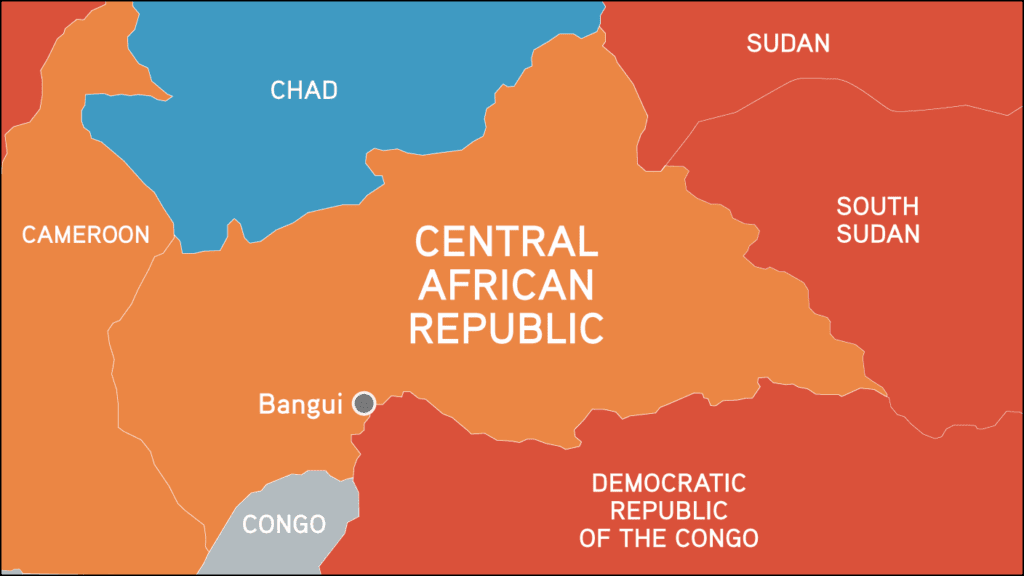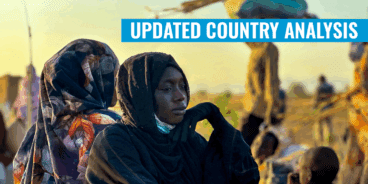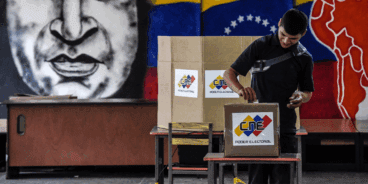Central African Republic

Populations in the Central African Republic are at risk of atrocity crimes due to ongoing violence by armed groups and abuses by government and allied forces.
BACKGROUND:
Civilians in the Central African Republic (CAR) continue be caught in the middle of fighting since the Coalition of Patriots for Change (CPC), a loose alliance of predatory armed groups, launched an offensive against the government in late 2020. The offensive collapsed a 2019 peace deal that formally ended more than five years of armed conflict. Major towns were occupied by the CPC, which included some of CAR’s strongest rebel groups. The Central African Armed Forces (FACA) – working closely with Russian security partners, including mercenary fighters from the Wagner Group (now Africa Corps) – responded with counteroffensives, forcing armed groups to withdraw from provincial towns for the first time in at least a decade.
Since 2021 armed groups have perpetrated regular violent attacks, with populations in the northwest, east and south bearing the brunt. The groups are committing violations of International Humanitarian Law (IHL), including killing and abducting civilians, the forcible recruitment of children and attacks on civilian infrastructure, humanitarian workers and the UN peacekeeping mission (MINUSCA). The Office of the UN High Commissioner for Human Rights (OHCHR) reported that two CPC-affiliated armed groups, including the Union for Peace in CAR (UPC), have perpetrated systematic and widespread conflict-related sexual violence, including rape, gang rape and sexual slavery. CPC-aligned armed groups have increasingly utilized guerrilla tactics, including explosive ordnance and kidnappings, oftentimes ambushing FACA and isolating civilians in rural communities.
The UN has also documented abuses and violations by FACA and mercenaries that may amount to war crimes, including summary executions, arbitrary killings, torture, rape and enforced disappearances. Ethnic and religious minorities have been disproportionately targeted – facing attacks, ill-treatment, illegal arrests and detentions – in operations by FACA troops and mercenaries. OHCHR has previously implicated proxy forces – who were recruited, trained and armed by FACA and mercenaries – in incidents targeting and punishing Muslim and Fulani communities that may amount to war crimes and crimes against humanity. The police have also arbitrarily arrested, illegally detained and tortured Fulani civilians.
Throughout 2024 clashes intensified in Haut-Mbomou between the Azande Ani Kpi Gbe (AAKG), a predominantly ethnic Azande armed group, and the UPC, largely composed of Fulani fighters. Hundreds of AAKG fighters were integrated into the FACA and conducted joint operations under the name Wagner Ti Azande (WTA), dislodging the UPC from several strongholds. Between October 2024 and January 2025 OHCHR and MINUSCA documented likely war crimes by WTA and AAKG, primarily targeting Muslim communities and Sudanese refugees. Since then, the alliance has fractured.
Government institutions have cracked down on human rights defenders, independent media and the opposition in recent years, with many arrested, harassed by pro-government armed groups or subjected to investigations. These authoritarian actions increased throughout 2024, fueling persistent tensions ahead of the December 2025 local and presidential elections.
The protracted crisis in CAR has its origins in the overthrow of President François Bozizé during March 2013 by the mainly Muslim Séléka rebel alliance. Abuses by the Séléka led to the formation of predominantly Christian anti-balaka militias and the collapse of state institutions. Anti-balaka and ex-Séléka forces committed likely war crimes and crimes against humanity between 2013-2015. To date, two former anti-balaka leaders have been convicted by the International Criminal Court and a trial is ongoing for a Séléka leader. The Special Criminal Court (SCC) in CAR has issued 48 arrest warrants for war crimes and/or crimes against humanity and has approximately 20 cases under investigation.
RECENT DEVELOPMENTS:
Armed group activity and IHL violations continue, leading to killings, kidnappings, forced displacement and increased conflict-related sexual violence and grave violations against children, particularly in the northwest, northeast and southeast prefectures, as well as near mining sites. Despite the government signing peace deals in April with the UPC and Return, Reclamation and Rehabilitation armed group, as well as ongoing disarmament efforts, thousands of fighters continue to pose a security threat. In their latest report, the UN Panel of Experts warned of escalating and increasingly coordinated attacks on Fulani community members across the country. Additionally, MINUSCA has faced increasing assaults, with at least three deadly attacks since the start of 2025.
Since late April, escalating ethnic tensions and clashes between the AAKG and FACA, backed by Russian mercenaries, have forcibly displaced thousands and killed dozens of civilians in Haut-Mbomou. Amid the fractured alliance between the AAKG and FACA, the AAKG has abducted numerous civilians, suggesting possible forced recruitment, and intensified the spread of ethno-nationalistic propaganda. The AAKG also continues to carry out serious abuses in Zemio, Dembia and Rafai, including killings, gang rapes, torture and kidnappings, particularly targeting Muslims, Fulani and Sudanese asylum seekers. Humanitarian workers have been attacked, and aid convoys looted. Reports of Russian personnel arresting Azande leaders and committing other human rights violations against civilians alongside the FACA, as well as evidence of FACA and Russian paramilitaries recruiting former UPC fighters to help combat the AAKG, have further deepened mistrust.
The conflict in neighboring Sudan continues to spill over into CAR, heightening cross-border tensions and violence. In late June a Sudanese armed group killed a peacekeeper in Vakaga prefecture while a MINUSCA patrol was responding to reports of an attack against civilians. In September MINUSCA reinforced their presence in Am Dafok to protect populations that had fled escalating violence during which civilians were killed and homes burned. Inter-communal dialogue at the end of October helped de-escalate tensions in Am Dafok.
ANALYSIS:
The security situation remains precarious in certain areas amid recurrent attacks on civilians. Although the CPC has weakened and become internally divided over time, dissident factions continue to threaten civilians through attacks, kidnappings and extortion as they pursue their own agendas. The cross-border flow of foreign fighters, arms and natural resources contributes to a thriving conflict-economy. Africa Corps have committed human rights abuses and targeted civilians to maintain and increase their control of mining areas.
Continued attacks and targeting by the AAKG has fueled reprisals against Fulani and Muslim communities, while UPC abuses have threatened Azande communities. This retaliatory violence heightens atrocity risks and has inflamed inter-communal tensions and resentment in southeast CAR.
The history of widespread impunity in CAR has fueled cycles of armed conflict and atrocities. While there are several mechanisms mandated to deal with international crimes perpetrated in CAR, accountability remains limited with few alleged perpetrators having been arrested, prosecuted or tried for war crimes and crimes against humanity since 2013. The lack of clarity regarding the legal status and command structures of militia members integrated into the FACA complicates accountability.
RISK ASSESSMENT:
-
-
- Security crisis caused by, among other factors, defection from a peace agreement and armed activity.
- Deliberate acts of violence and exploitation against vulnerable populations.
- Escalating violence and hate speech on the basis of ethnicity and religion, increasing retaliatory attacks and the formation of self-defense groups and/or forced recruitment.
- Training and use of abusive armed groups as proxies and integration of such groups into FACA, and lack of clarity around the chain of command.
- Repressive measures to close civic space and suppress dissent, resulting in a climate of fear ahead of local and presidential elections.
-
NECESSARY ACTION:
All armed actors must adhere to their obligations under IHL and International Human Rights Law. CAR authorities must instruct FACA to cease collusion or cooperation with armed groups. Provincial and local authorities, in coordination with civil society, should implement community-based atrocity prevention and response strategies to address and mitigate inter-communal tensions.
All perpetrators of atrocities in CAR should be held legally accountable, regardless of their political status, rank, affiliation or nationality. All suspects subject to SCC arrest warrants should be taken into custody. The international community should ensure that the SCC has sufficient resources to carry out its mandate. The SCC should establish a reparations mechanism to ensure comprehensive justice for victims.
CAR authorities must guarantee the independence of institutions, respect freedom of peaceful assembly and association, strengthen and protect civic space and counter incitement to violence.
Atrocity Alert No. 430: Syria, Central African Republic and the Philippines
Related Content

Populations at Risk, November 2025
Resolution 2800 (Central African Republic) S/RES/2800
